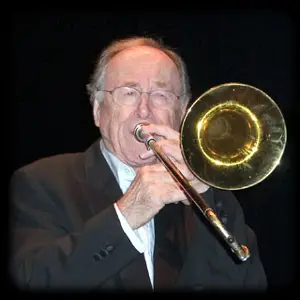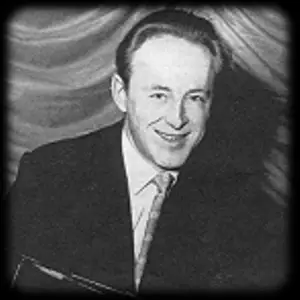CHRIS BARBER
 Nobody did more to introduce the Blues into Europe than Chris Barber, bringing over American stars in the 50s to play with his band and going on to inspire the young men who started the British Blues Boom. Chris saw no meaningful barrier between Jazz and Blues players as he rated the qualities of musicianship and improvisation higher than the niceties of academic categorisation. He continues to lead a touring band, more than sixty years after it was formed.
Nobody did more to introduce the Blues into Europe than Chris Barber, bringing over American stars in the 50s to play with his band and going on to inspire the young men who started the British Blues Boom. Chris saw no meaningful barrier between Jazz and Blues players as he rated the qualities of musicianship and improvisation higher than the niceties of academic categorisation. He continues to lead a touring band, more than sixty years after it was formed.
 Even without these American giants on stage, Chris’s band usually played a Blues set, as guitarist Alexis Korner and Cyril Davies on harp would accompany Ottilie as she sang the songs of Bessie Smith and Memphis Minnie with a cut-down band. Eventually Alexis and Cyril would break away to form Blues Incorporated and set up The Ealing Blues Club, where British Blues was forged into a force that would change the world of popular music, but Chris was the man who lit the fire. He was also, along with Harold Pendleton, the founding Director of The Marquee Club, a legendary venue that is now at its third premises, and also the National Jazz and Blues Festival that started at Richmond and went on to find a permanent home as the huge Reading Festival.
Even without these American giants on stage, Chris’s band usually played a Blues set, as guitarist Alexis Korner and Cyril Davies on harp would accompany Ottilie as she sang the songs of Bessie Smith and Memphis Minnie with a cut-down band. Eventually Alexis and Cyril would break away to form Blues Incorporated and set up The Ealing Blues Club, where British Blues was forged into a force that would change the world of popular music, but Chris was the man who lit the fire. He was also, along with Harold Pendleton, the founding Director of The Marquee Club, a legendary venue that is now at its third premises, and also the National Jazz and Blues Festival that started at Richmond and went on to find a permanent home as the huge Reading Festival.
Rory Gallagher and Chris’s string-bass on Muddy’s ‘I Can’t Be Satisfied’;
Chris continued with his jazz band but it always had a blues flavour, as he recruited electric guitarist John Slaughter in 1964 and he remained in the band, barring one period when he was substituted, until his sad death in 2010. Aware that the experience was good for the band, Chris continued to bring American talent to Britain throughout the 60s, with Howlin’ Wolf, Memphis Slim, Rice ‘Sonny Boy II’ Miller and Louis Jordan sharing the stage with his excellent musicians. This proud tradition continued into the eighties with Dr. John and Van Morrison taking their turn. In 2001, Chris formed his 11-piece Big Band, and they still maintain a busy touring schedule in Britain and Europe. He is also partly responsible, along with Eric Clapton and others, for setting up the co-operative Blues Legacy Record label. It says something about Chris’s open minded approach that the latest recruit to the Big Band, saxophonist Ami Roberts, joined straight from music college.